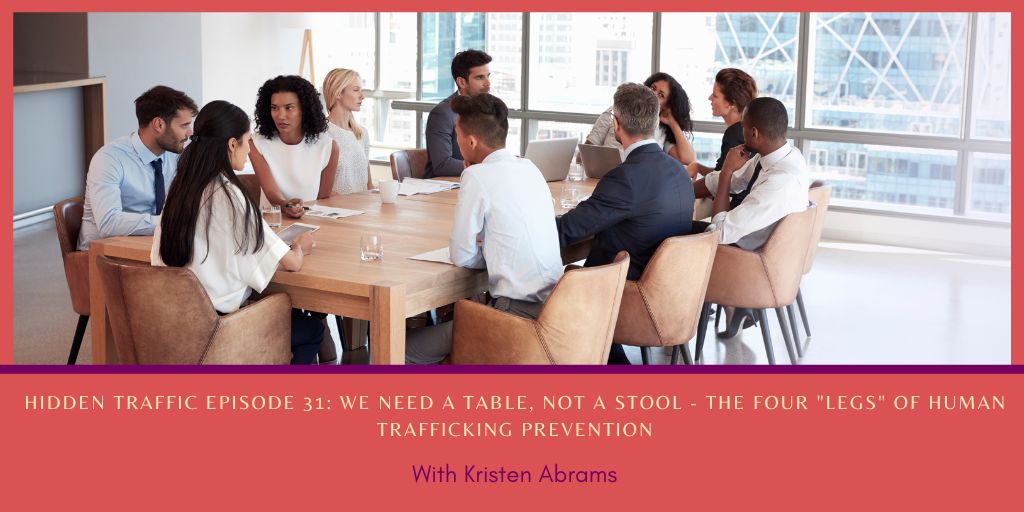
Kristen Abrams is the Director of the Human Trafficking Initiative at the McCain Institute for International Leadership at Arizona State University. She is an experienced prosecutor who has worked to combat human trafficking both in the United States and internationally. At the McCain Institute, Kristen leads efforts to prevent human trafficking by partnering with organizations, governments, and individuals to develop innovative and effective strategies. She is a sought-after speaker and has appeared on numerous panels and podcasts to discuss this important issue.
In this episode, host Gwen Hassan and Kristen talk about the four key areas that need to be addressed to combat human trafficking effectively: legislative and policy frameworks, law enforcement and prosecution, engagement with the private sector, and survivor leadership. Kristen provides valuable insights into the challenges and opportunities within each area, drawing from her experience working with government agencies, NGOs, and prosecutors from around the world. All four areas need to work together in a coordinated effort to tackle the complex issue of human trafficking.
Kristen discusses the current state of human trafficking, noting that despite increased efforts to combat it, the number of investigations, prosecutions, and convictions has decreased. She suggests that the best way to fight human trafficking is through a multifaceted approach involving four “legs” of prevention: enforcement, policy and legislation, private sector engagement, and survivor leadership.
The first leg of prevention is enforcement, which involves specialized human trafficking prosecutors working in criminal justice systems around the world to prosecute offenders. The Global Prosecutors Consortium is a group of prosecutors from 18 different countries who met recently to discuss the challenges they face and to build a network of specialized prosecutors who can learn from each other and share best practices. Kristen stresses that it is important to keep the individual victim at the center of the work.
The second leg of prevention is policy and legislation, which involves enacting laws to prevent human trafficking and to punish those who engage in it. Kristen cites the Uighur Forced Labor Act and proposed legislation in Europe that would prevent goods produced with forced labor from entering major economies as examples of promising efforts.
The third leg of prevention is private sector engagement, which involves engaging companies and institutional investors to assess their supply chains and ensure that their products are not produced with forced labor. Kristen notes that consumer demand and regulatory and investor pressure are key drivers of this engagement.
Finally, the fourth leg of prevention is survivor leadership, which involves empowering survivors of human trafficking to lead the fight against it. Kristen remarks that survivor leadership is often overlooked and that it is important to include survivors in all aspects of prevention efforts.
Overall, a multifaceted approach to preventing human trafficking is necessary, which Kristen likens to a table with four legs rather than a stool with two legs. Each leg of the table is necessary to support the other legs, and without all four legs, the table cannot stand. By involving specialized prosecutors, enacting legislation, engaging the private sector, and empowering survivors, it is possible to make progress in the fight against human trafficking.
Resources





